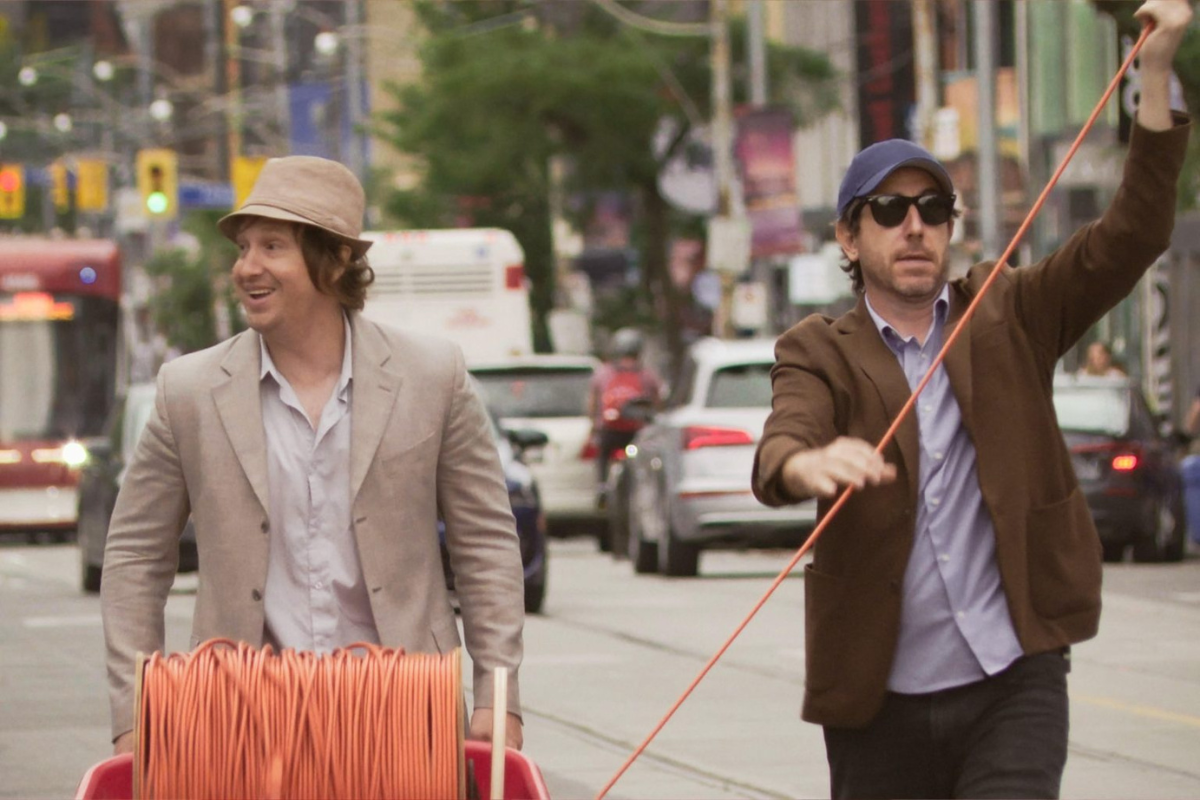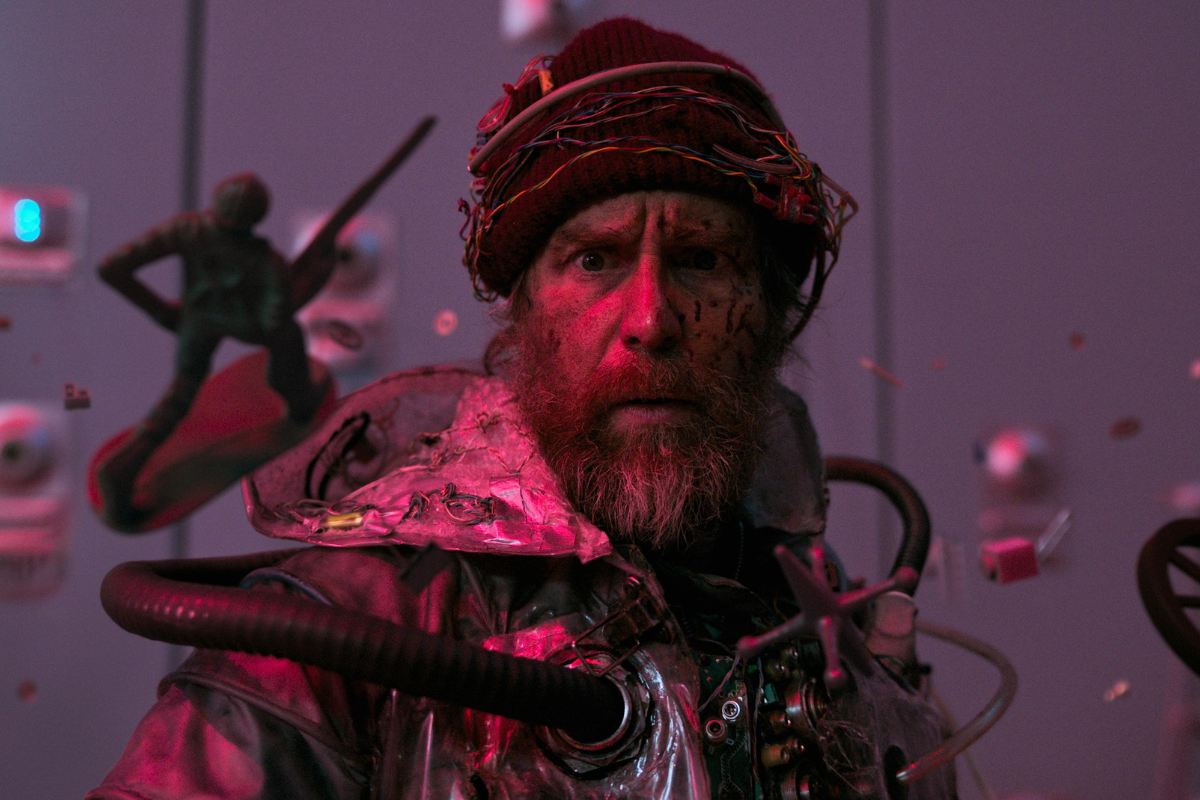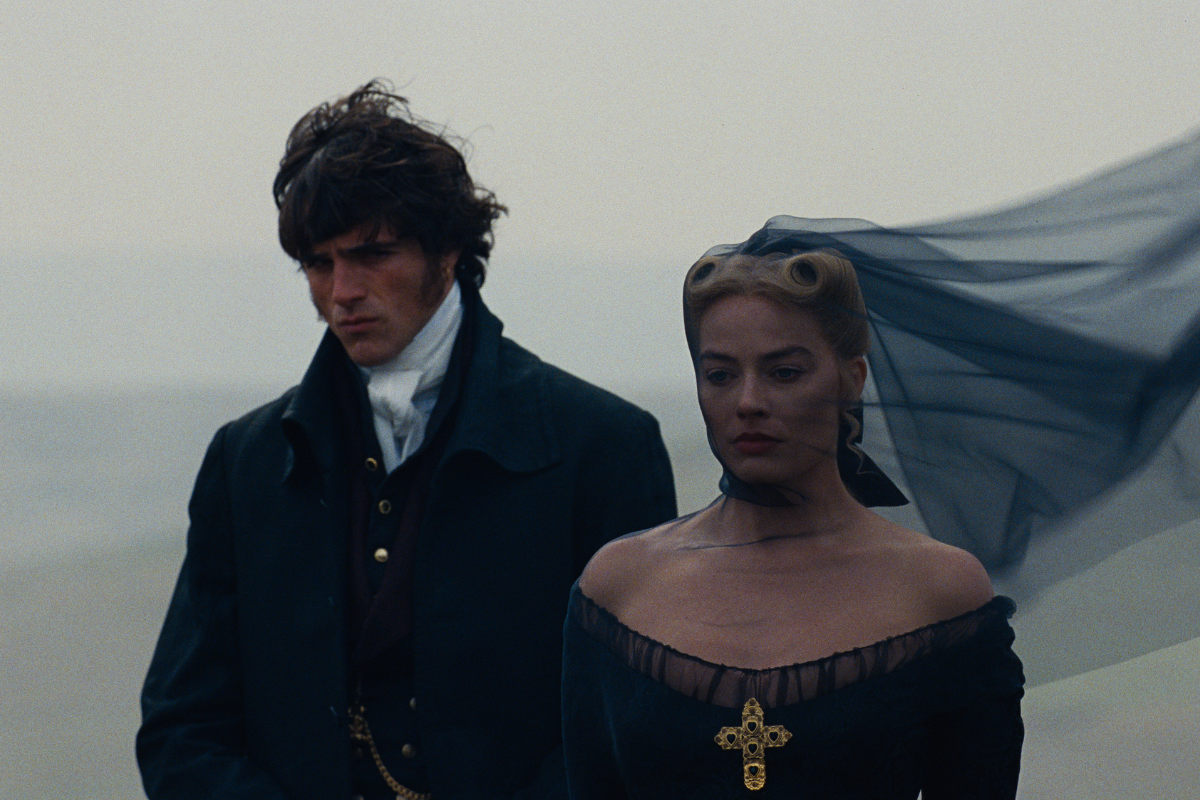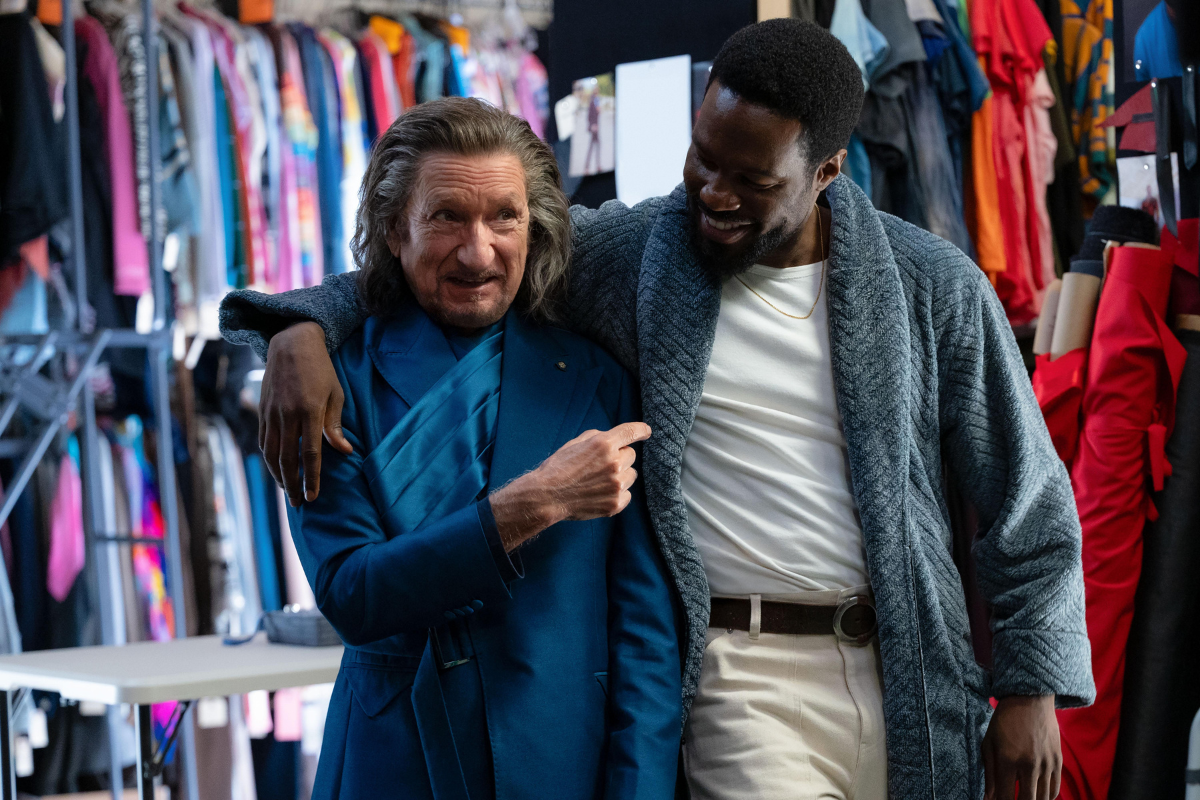‘The Running Man’ Review
When Chaos Meets Caution: Edgar Wright’s Uneven Dystopian Ride
Edgar Wright is one of those directors whose style is so unmistakable that you can almost tell who is behind the camera by watching a single scene. From Shaun of the Dead to Hot Fuzz to Baby Driver, his films have consistently balanced kinetic energy, precise editing, and sharp humor. That is why walking into his latest project, The Running Man, I was both excited and cautious. Unfortunately, this adaptation of Stephen King’s 1982 novel under his pseudonym Richard Bachman is a wild mix of fun and frustration, and it feels like Wright is holding back when he should be letting loose.
The film starts strong, with a playful, almost cartoonish energy that reminds you why Wright became a favorite among genre enthusiasts. The first hour is full of vibrant set pieces, clever visual gags, and Glen Powell fully embracing the archetype of the desperate, determined action hero. Powell is magnetic in the lead role of Ben Richards, a father trying to secure medicine for his sick daughter. His performance is both charming and angry, giving us a protagonist who is aware of the absurdity of his situation yet committed to seeing it through. Powell’s physicality and charisma make him captivating to watch, and he handles the film’s early tonal swings with ease.
The supporting cast is solid and often steals scenes from the lead. Colman Domingo as Bobby T, the flamboyant host of The Running Man, is an absolute delight. Every moment he is on screen feels alive and unrestrained, providing a counterbalance to the film’s darker elements. Josh Brolin’s Dan Killian, the show’s villainous producer, is effective, though he never quite reaches the menacing heights the story seems to promise. Michael Cera makes a fun and brief appearance, bringing a sense of levity to the otherwise tense proceedings. Katy O’Brian is criminally underutilized, but she injects vitality into every moment she is allowed on screen. The chemistry among the ensemble cast is one of the film’s strongest assets.
The action sequences are slick and polished, but surprisingly restrained for a film that promises high-octane mayhem. Wright’s signature kinetic style is present at moments, yet it never fully reaches the chaotic, thrilling heights of Baby Driver or Hot Fuzz. The set pieces are enjoyable, and there are flashes of brilliance, particularly in sequences that focus on suspense and tension rather than pure spectacle. It is clear that a lot of care went into staging and shooting these scenes, but the editing sometimes feels cautious, robbing the sequences of the adrenaline they deserve.
One of the biggest challenges the film faces is its tone. It attempts to blend satirical comedy, social commentary, and action thriller elements, but these strands do not always coexist smoothly. At times, the humor falls flat, and the satire is overly blunt, making the film feel uneven. Scenes that should feel shocking or tense are undercut by a sense of restraint, and the social commentary rarely lands with the weight it should. The critique of reality television, media manipulation, and societal complacency is evident but surface-level. The film wants to say something about our world in 2025, a world eerily close to our own, but it often substitutes style for substance.
The narrative moves quickly, sometimes too quickly. Important character moments from the novel are condensed or omitted, leaving some relationships underdeveloped and emotional beats feeling hollow. The love Richards has for his daughter is never in question, but the story spends so little time establishing stakes outside of the show itself that some of the tension feels artificial. Similarly, the hunters pursuing Richards, while visually distinct and sometimes memorable, lack real menace. The audience understands the threat, but the danger never fully lands. This contributes to a sense that the film is moving at breakneck speed without giving viewers the chance to catch their breath and invest emotionally.
Visually, the film is polished and futuristic, capturing a United States obsessed with entertainment in a way that is both immersive and familiar. The production design is vibrant, and the world feels lived-in, even if it never quite reaches the immersive depth of classic dystopian cinema. Chung-hoon Chung’s cinematography is competent and occasionally striking, though it lacks the distinctive flair of his previous collaborations. The musical choices are excellent, energizing the action sequences and complementing Wright’s visual rhythm, providing some of the film’s most enjoyable moments.
Despite all the issues, The Running Man has its charms. Wright’s moments of directorial flair shine when the story focuses on suspense or creative action rather than trying to juggle multiple themes. Glen Powell’s performance keeps the film engaging, and the supporting cast frequently lifts scenes beyond what the script delivers. There is a sense of fun buried in the chaos, a reminder of what Wright does best when he is unshackled by studio expectations or source material fidelity.
Ultimately, the film feels like a missed opportunity. It could have been a thrilling, gonzo adaptation in the vein of the original 1987 version or a pure, chaotic Wright creation that amplified the absurdity and social critique of the novel. Instead, it is a cautious, middle-of-the-road blockbuster that struggles to find its identity. The story is serviceable, the characters are appealing, and the world is intriguing, but the result is a film that is entertaining but rarely exhilarating. It is competent, slick, and at times surprisingly funny, but it is not the bold, audacious, and unforgettable Wright film that fans hoped for.
For long-time Wright admirers like me, there is a bittersweet quality to the film. The kinetic camera moves, playful visual cues, and moments of sharp comedy remind you of why his earlier work left such a mark, but the restraint is frustrating. The film flirts with brilliance without ever fully committing, leaving the viewer with the sense of what could have been. Glen Powell proves he can carry a lead role with charisma and anger, but the surrounding elements do not support him in reaching the emotional and thematic heights the story demands. This is a cautionary example of how even a director with a distinct voice can be muted by the constraints of studio filmmaking.
In conclusion, The Running Man is a film that entertains more than it inspires. It is fast-paced, occasionally funny, and full of committed performances, yet it struggles under the weight of its ambition. Edgar Wright’s fingerprints are present, but faint, and the film lacks the energy and innovation that have defined his career. Glen Powell shines in the lead, and Colman Domingo steals every scene he is in, yet the film as a whole never fully ignites. Fans of the book or casual audiences seeking a polished action film will find something to enjoy, but for those expecting a Wright experience, this is likely to feel like a pale shadow of what could have been. It is an intriguing attempt, but ultimately it is a cautious, uneven film that reminds us how much we have missed the chaotic, fearless Edgar Wright of a decade ago.
The Running Man is now in Theaters.







